The Brazilian market stands as a blend of promise and caution for investors. It’s a colossal economy with diverse sectors, boasting a population of over 215 million, offering vast opportunities.
Industries like automotive, finance, and renewable energy show great promise. Yet, navigating its complexities demands scrutiny.
So, to better understand the factors impacting business growth in Brazil, we will use the PESTEL model. This publication aims to diagnose the business environment in Brazil.
Political environment
Brazil’s political landscape presents a mix of promise and concern. President Lula da Silva’s return offers hope for economic reforms, emphasizing social welfare programs and infrastructure development.
This could fuel growth and beckon investments. Moreover, Brazil’s alignment with global sustainability trends, focusing on renewable energy and eco-friendly practices, creates opportunities for job creation and foreign capital attraction.
However, challenges loom large. Deep political divisions impede essential reforms, potentially discouraging investment and slowing economic progress.
Understanding these opportunities and threats is crucial, but staying informed about the evolving political landscape is equally important before making investment decisions in Brazil.
Economic environment
Opportunities:
- Economic Recovery: Brazil’s economy is recovering moderately following the initial pandemic shock. 2023 saw growth of around 2.6%, driven by agriculture, household consumption, and government spending. This momentum, if sustained, could present investment opportunities across various sectors.
- Moderate Inflation: Inflation has slowed down from its peak of 12.1% in April 2022 and is currently hovering around 4.6%. This decline has enabled the Central Bank to lower interest rates, potentially stimulating borrowing and investment.
- Stable Currency: The Brazilian Real has strengthened recently, offering some stability for foreign investors.
- Focus on Infrastructure: Increased government spending on infrastructure projects could create jobs, boost economic activity, and attract investment in construction and related sectors.
- Resource Abundance: Brazil’s wealth of natural resources like oil, gas, minerals, and fertile land continues to attract investments in these sectors.
Challenges:
- Slow Growth: Despite the recovery, Brazil’s economic growth remains sluggish compared to its pre-pandemic levels and lags behind its emerging market peers. This raises concerns about long-term financial prospects.
- Fiscal Deficit: The government’s budget deficit remains a concern, increasing public debt and potentially reducing its ability to invest in growth-promoting initiatives.
- High-Interest Rates: Although declining from their peak, interest rates are still relatively high, potentially hindering borrowing and investment, particularly for small and medium-sized businesses.
- External Risks: Global economic slowdown and potential recession in major trading partners could negatively impact Brazil’s exports and economic growth.
- Political Uncertainty: The upcoming presidential election in 2026 could lead to increased political uncertainty and hinder progress on economic reforms.
Social environment
Brazil’s social landscape teems with potential but also grapples with critical challenges. The burgeoning middle class, now over 50 million strong, opens doors for businesses targeting this affluent segment, fueling a growing consumer market.
Investments in education pave the way for social mobility, nurturing a skilled workforce that could entice foreign investments and drive economic growth.
Additionally, increased internet access and mobile usage, especially in rural areas, offer prospects for digital literacy programs and enhanced access to essential services, ultimately empowering communities and enhancing quality of life.
However, amid these opportunities, significant threats loom. Brazil’s staggering wealth disparities, reflected in one of the world’s highest Gini coefficients, fuel social unrest, impede poverty reduction and limit market access for many enterprises.
High rates of violent crime, particularly in urban centers, deter investment and tarnish the nation’s allure for tourists, impacting the daily lives of many Brazilians.
Furthermore, deep political divisions amplify social tension, potentially stalling crucial advancements in healthcare and education, while discrimination against indigenous communities, minorities, and LGBTQ+ individuals hinders inclusive development and perpetuates social injustices.
Navigating Brazil’s social fabric demands a balanced approach. Understanding the nuances of social dynamics, promoting social responsibility in investments, and engaging with local communities to foster positive impact are pivotal.
While the landscape offers promising opportunities, acknowledging and addressing these challenges will be vital to promoting a more just, equitable, and inclusive society in Brazil.
Technological environment
Brazil’s technological environment unveils a landscape ripe with promise and challenges. The nation’s e-commerce boom, propelled by rising smartphone usage and internet accessibility, offers a burgeoning market for online retailers, logistics, and fintech innovators.
The fintech revolution disrupts traditional finance, drawing investments and fostering financial inclusivity through mobile banking and digital payments. Brazil’s vibrant startup ecosystem, particularly in AI, robotics, and IoT, also magnetizes venture capital, nurturing innovation and inviting collaborative investments in nascent ventures.
However, significant threats loom within these opportunities. The persistent digital divide restricts economic opportunities for a sizable portion of the population, perpetuating social inequalities. Rising online activity heightens cybersecurity risks, necessitating investments in protective infrastructure.
The ambiguity of data privacy laws may hinder international partnerships and investments, while the emigration of skilled tech professionals poses talent retention challenges.
Moreover, Brazil’s historically limited investment in research and development may impede its long-term technological competitiveness.
Addressing these hurdles is crucial. Strengthening technological infrastructure, promoting education and skills development, and fostering collaboration among various stakeholders can bolster Brazil’s tech prowess.
Investors are advised to identify promising sectors aligned with market trends, engage with local players to navigate nuances, and invest in solutions bridging the digital divide.
Brazil’s technological panorama offers a vibrant mix of prospects and obstacles. By tackling existing challenges while leveraging strengths, Brazil can unleash its potential as a tech hub, ensuring equitable access to the benefits of technological advancements.
Ecological environment
Investing in Brazil’s ecological environment offers potential and challenges, presenting unique opportunities alongside crucial considerations. The landscape features promising prospects:
Opportunities:
Brazil’s renewable energy potential, abundant in solar, wind, and biomass resources, aligns with the government’s push for clean energy. Investments in solar and wind farms, hydropower, and biofuel production offer substantial returns while contributing to environmental sustainability.
The rising demand for sustainable food also creates investment avenues in organic farming and precision agriculture technologies, meeting market needs and protecting the environment.
Brazil’s rich biodiversity fuels ecotourism, enticing investments in sustainable tourism initiatives, benefiting local communities, and preserving natural ecosystems.
Yet, amidst these opportunities, significant threats loom:
Threats:
The rampant deforestation, unsustainable practices, and adverse impacts of climate change pose critical threats. Deforestation and land degradation imperil the Amazon rainforest and ecosystems, impacting climate regulation and indigenous communities.
Climate change-induced droughts, floods, and extreme weather events jeopardize agriculture, infrastructure, and human health. Uneven water distribution and pollution exacerbate water scarcity, threatening millions of Brazilians and demanding urgent investments in water management.
Illegal wildlife trade endangers Brazil’s diverse fauna, disrupting ecological balance and damaging the country’s reputation.
Navigating this complex landscape necessitates specific strategies:
Recommendations for Investors:
Thorough due diligence, partnering with reputable organizations, and prioritizing long-term impact is pivotal. Assessing environmental and social effects, collaborating with experienced stakeholders, and focusing on sustainable returns while benefiting local communities are crucial for investors.
In Conclusion, investing in Brazil’s ecological environment holds promise for environmental conservation, economic growth, and societal well-being.
By astutely considering opportunities, mitigating threats, and prioritizing responsible practices, investors can shape a sustainable future for Brazil.
Legal environment
Investing in Brazil requires careful consideration of its legal landscape, which presents promising opportunities and potential threats. Here’s a breakdown of the current situation:
Opportunities:
- Legal Reforms: The Brazilian government has implemented several positive legal reforms in recent years, such as the “Doing Business” law to simplify business registration and promote foreign investment.
- Strong Intellectual Property Protection: Brazil’s intellectual property laws are relatively robust, offering protection for patents, trademarks, and copyrights, which can benefit foreign businesses.
- Dispute Resolution Mechanisms: Brazil offers various dispute resolution mechanisms, including arbitration and mediation, which can provide faster and more efficient alternatives to traditional court litigation.
- Growing Demand for Legal Services: As Brazil’s economy becomes more complex, the demand for legal services is increasing, creating opportunities for lawyers, legal consultants, and legal tech companies.
- Focus on Compliance and Transparency: Increased emphasis on compliance with anti-corruption and anti-money laundering regulations presents opportunities for businesses offering compliance solutions and consulting services.
Threats:
- Legal Uncertainty and Complexity: Brazil’s legal system can be complex and bureaucratic, with overlapping regulations and frequent law changes, creating uncertainty for investors.
- Judicial Inefficiency: The Brazilian judicial system could be faster and more manageable, potentially leading to delays in resolving disputes and impacting business operations.
- Corruption and Lack of Transparency: Despite progress, corruption remains a concern in Brazil, potentially increasing operational costs and impacting market fairness.
- Labor Regulations: Brazil’s labor laws are notoriously complex and protective of workers, which can pose challenges for some companies regarding hiring, firing, and managing contracts.
- Ineffective Enforcement: Weak enforcement of laws and regulations can undermine the effectiveness of legal reforms and create uneven playing fields for businesses.
Additional Points:
- Sector-Specific Regulations: Different sectors in Brazil have specific legal frameworks, and understanding these nuances is crucial for investors in targeted industries.
- Language Barrier: Portuguese is the official language in Brazil, which can create challenges for foreign investors and necessitate legal assistance or translation services.
- Role of Legal Counsel: Partnering with qualified and experienced Brazilian legal counsel is essential for navigating the legal landscape, mitigating risks, and ensuring compliance with relevant regulations.
Recommendations for Investors:
- Conduct thorough legal due diligence: Assess the legal risks and uncertainties associated with your investment, seeking expert advice from Brazilian lawyers.
- Develop a compliance strategy: Implement robust policies and procedures to avoid legal violations and reputational damage.
- Stay updated on legal developments: Keep track of changes in laws and regulations to adapt your investments accordingly.
- Build relationships with local stakeholders: Collaborate with legal professionals, industry experts, and government officials to navigate the legal environment effectively.
While navigating Brazil’s legal environment can be challenging, understanding the opportunities and threats, conducting thorough due diligence, and seeking qualified legal counsel can help minimize risks and increase the chances of successful investments.
Remember, this is just a general overview, and I recommend consulting with a Brazilian lawyer specializing in relevant areas for specific advice tailored to your investment plans.
Conclusion
In essence, Brazil presents a dichotomy of opportunity and risk. Investors can capitalize on its strengths by conducting meticulous research, seeking expert advice, and closely tracking the market’s pulse to mitigate potential downsides and leverage its potential upsides.
In a positive light, Brazil flaunts a robust economy, diverse industries, and abundant natural resources. Its tech scene and favorable trade relations with the US invite investment.
However, challenges lurk. Investors must heed the red flags of political instability, infrastructure hurdles, income inequality, and concerns about crime and corruption.
Recent developments, like President Lula’s return and the country’s focus on sustainability, hint at potential reforms and eco-friendly investments.
Yet, regional disparities and the need for vigilant monitoring of political and economic shifts underscore the importance of thorough research and professional counsel before diving into the Brazilian market.
PESTEL analysis examples 2024
To better understand the PESTEL analysis, we invite you to read our recent free examples of the Pestel framework.
PESTEL analysis of Coca-cola
Click here to read our example of Coca-cola PESTEL analysis.
PESTEL analysis of British Airways
Click here to read our example of British Airways PESTEL analysis.
PESTEL analysis of Primark
Click here to read our example of Primark’s PESTEL analysis.
PESTEL analysis of Zara
Click here to read our example of Zara’s PESTEL analysis.
PESTEL analysis of DHL
Click here to read our example of DHL’s PESTEL analysis.
PESTEL analysis of FedEx
Click here to read our example of FedEx’s PESTEL analysis.
PESTEL analysis of Chipotle
Click here to read our example of Chipotle’s PESTEL analysis.
PESTEL analysis of Spotify
Click here to read our example of Spotify Pestel analysis.
Chick-fil-A PESTEL Analysis
Click here to read our example of Chick-fil-A Pestel analysis.
Costco PESTEL Analysis
Click here to read our example of Costco Pestel analysis.
Microsoft PESTEL Analysis
Click here to read our example of Microsoft Pestel analysis.
Disney PESTEL Analysis
Click here to read our example of Disney Pestel analysis.
Airline Industry PESTEL Analysis
Click here to read our example of the Airline industry Pestel analysis.
Walmart Pestel Analysis
Click here to read our example of Walmart Pestel analysis.
Amazon Pestel Analysis
Click here to read our example of Amazon Pestel analysis.
McDonald’s Pestel Analysis
Click here to read our example of the Netflix Pestel analysis.
Netflix Pestel Analysis
Click here to read our example of the Netflix Pestel analysis.
Apple Pestel Analysis
Click here to read our example of the Apple Pestel analysis.
Twitter Pestel Analysis
Click here to read our example of the Twitter Pestel analysis.
Facebook Pestel Analysis
Click here to read our example of the Facebook Pestel analysis.
Pestel analysis of the Social Media industry
Click here to read our example of the Pestel analysis of the Social Media industry.
Ikea Pestel Analysis
Click here to read our example of the IKEA Pestel analysis.
Tesla Pestel Analysis
Click here to read our example of the TESLA Pestel analysis.

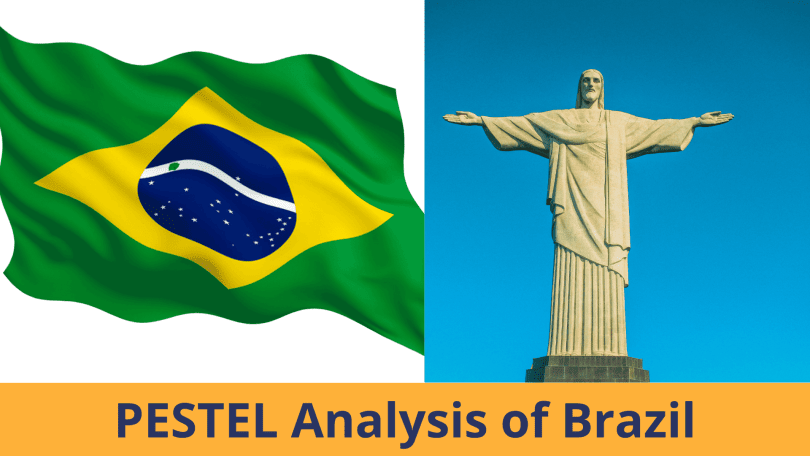
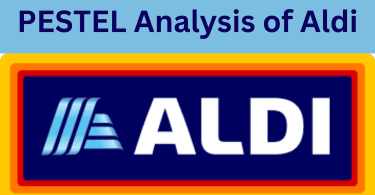
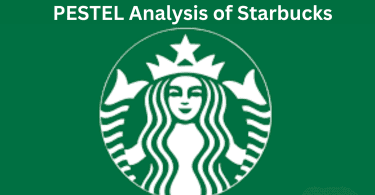
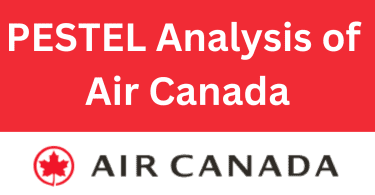
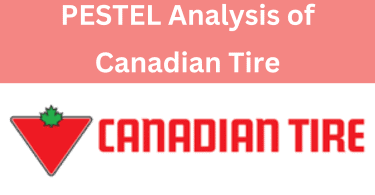

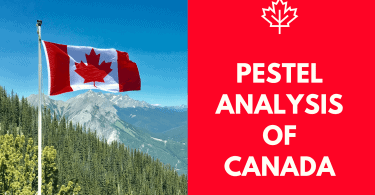
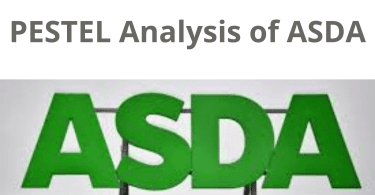
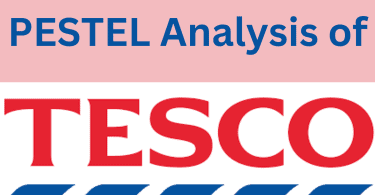
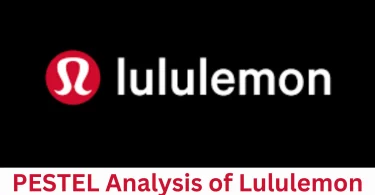
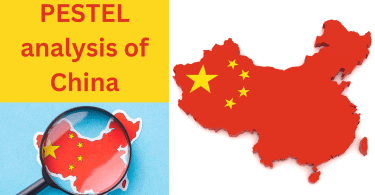
Over recent year, Brazil has been a good economy in which to start a business, with good economic growth, prior to 2020.
However, since the last election we have seen a series of crackdowns by the new government there, against both businesses and politicians. Its now a course of wait and see to see whether the political environment remains stable.